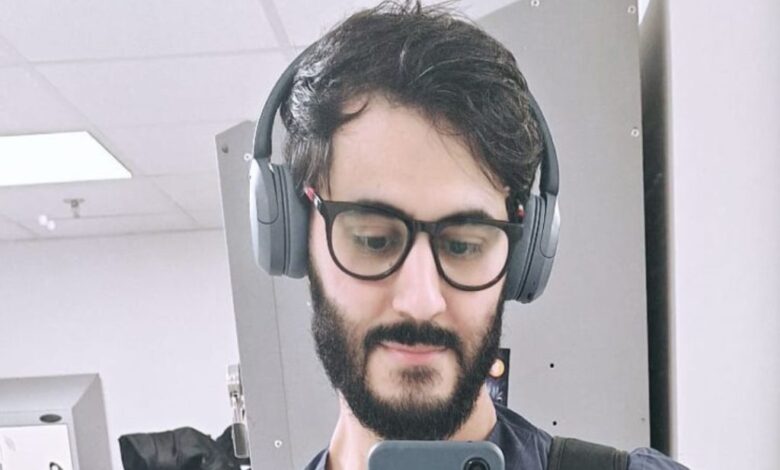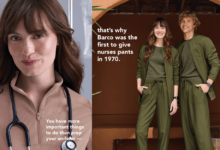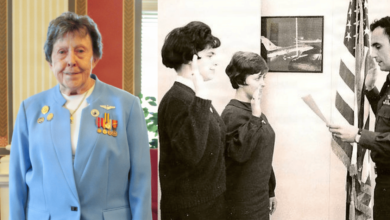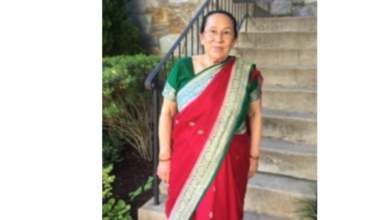Refugee nurse reflects on experience joining NHS

A Palestinian nurse who entered the UK via a refugee recruitment scheme has spoken about his experiences and challenges while integrating into the NHS.
Wissam Asaad originally trained as a nurse in Lebanon, where he worked for around a decade, before successfully applying to the Displaced Talent Mobility visa programme.
“I found the local community to be very welcoming and supportive”
Wissam Asaad
The programme is run by charity Talent Beyond Boundaries in partnership with governments and facilitates the sponsorship of displaced refugees with professional qualifications in sectors including nursing.
Nurses on the visa scheme are refugees as per international law, but enter the UK on working visas sponsored by their NHS employers.
Before leaving Lebanon, Mr Asaad completed a degree specialising in adult nursing and worked as a trauma nurse.
Mr Asaad, like other Palestinians who have spoken with Nursing Times, decided to leave Lebanon, which since 2019 has faced economic issues and political turmoil, to work in the UK when the opportunity arose.
“[The scheme] chooses people according to the priority of trusts,” he said.
“After [I applied], I met with recruitment [staff] in the NHS. If they are happy with you, they accept it and provide your visa to begin the process of registration in the Nursing and Midwifery Council (NMC).”
In March 2021, he arrived in the UK via the visa scheme and began working towards his English exams, a requirement for entering the NMC register.
Mr Asaad said the English test was “a challenge for me, and a lot of other Arabic [speaking] people”.
“It’s difficult because it’s focused on the [nursing] profession, not general English. That was a challenge and made me frustrated sometimes,” he added.
After recently gaining his nursing PIN, Mr Asaad is now working as a registered nurse in trauma and intensive care at The Royal London Hospital, which is part of Barts Health NHS Trust.
However, in the interim, Mr Asaad – like many other internationally recruited nurses – had to work as a healthcare assistant (HCA), below his previous nursing level.
While he understood why, Mr Asaad aired his frustration at this part of the international recruitment system.
“I did not feel comfortable about this [role]… I was working for 10 years in my country [as a nurse], I have a master’s degree,” he said.
Mr Asaad added, however, that getting used to the NHS did take some time and that working as an HCA helped him to understand the new protocols, terminology and patient care approaches.
“One of the significant barriers I faced was [differences] in clinical practice and the emphasis on safety procedures, that was different to my previous experience,” he said.
Coming to the UK on a work visa means users of the Displaced Talent Mobility scheme have different entitlements to what they would have as a refugee.
“My current job in the NHS… is amazing, I am gaining new skills and knowledge”
Wissam Asaad
Unlike people with refugee status, they do not gain access to public funds, as much integration support from the government or humanitarian protection status.
However, like refugees, the displaced talent nurses gain a five-year route to settlement in the ability to apply for indefinite leave to remain when their visa expires. As well as this, they are eligible for some support from charities.
Mr Asaad was given assistance settling in by the Neighbours for Newcomers (N4N) scheme, run jointly by charities Reset UK and Talent Beyond Boundaries.
The N4N scheme connects incoming displaced nurses with volunteers in their local area, who help them with the practicalities of living in the UK.
It is funded through a partnership between Talent Beyond Boundaries, the Department of Health and Social Care and NHS England, and volunteers from 25 different locations in the UK since 2021 have helped run social events for the incoming workers, or provided aid with processes like setting up bank accounts or registering with GPs.
“I found the local community to be very welcoming and supportive. The volunteers in the area are highly respected and passionate,” Mr Asaad said.
“They organise a lot of events and engage us.”
The volunteers are trained by Reset UK, with which Mr Asaad has continued to work to help other people arriving into the UK in similar circumstances since his time on the scheme ended.
Mr Asaad said he, and some other internationally recruited nurses, gained help navigating the London Underground from the volunteers, for example.
“[I felt] very confused about that, but the volunteers were supporting and educating us about how to live in London, how to use the underground etc,” he said.
“They engaged me to volunteer as well, so I work with some of the projects – I had a meeting with a Syrian refugee who came to the UK.”
Despite his challenges settling into working in the NHS, Mr Asaad said people at his trust had been very accommodating.
“My current job in the NHS… is amazing, I am gaining new skills and knowledge,” he said.
“I’m so lucky because I’m working in the hospital, mostly in trauma. It’s not easy, a lot of stress in this environment. But I like challenge.
“The nurses here are very supportive and they are lovely, they don’t [make me] feel like I am different from the others, all are equal.
“The matrons here are supportive as well, and my manager, so I feel like I’m comfortable in my ward.”
Now working as a fully qualified registered nurse, he said he intended to pursue further qualifications in intensive care.
“I like to improve myself and make myself as the most valuable nurse in the world,” he added.






